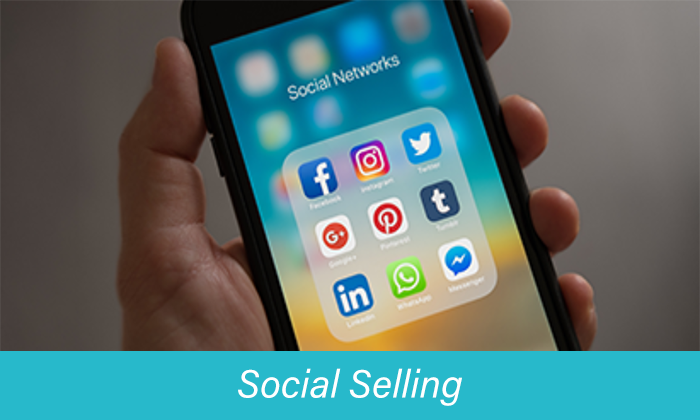The great promise of social selling is more sales and a more effective sales process. In this blog post, you will learn about the specific benefits social selling offers them and why this sales strategy has become essential for many B2B companies.
1. Shorten the sales cycle, close the deal faster
It's a common annoyance in sales that closing important deals sometimes feels like an eternity. There's always that one potential customer who keeps your staff asking questions for months and then ends up buying nothing. The root of this problem lies in the traditional outbound sales process.
Many companies still rely on cold calling to continuously generate customer leads - but this leads to complex meetings and numerous phone calls and emails. While this strategy can prove successful, it makes prospects feel like they are doing your company a favour, regardless of whether they ever turn into truly qualified leads.
In the end, dialogues with unqualified or under-qualified leads don't lead to the success you want - despite the best intentions of your salespeople. After all, B2B buyers usually make their decision before the first conversation with a salesperson.
Social selling allows you to interact with your customers on a human level and share valuable information with them at the right time. In this way, you establish yourself as a recognised expert and give your brand tangible added value. In this way, you create the desire to work with you among potential customers at an early stage and do not have to do much convincing during the sales cycles. In direct comparison to traditional outbound approaches, sales cycles are shortened by an average of 20 days.
2. Gain intimate insights, discover sales potential
Social selling gives your employees a deeper insight into the wishes and needs of interested people. In seemingly trivial conversations, you can find out what your customers actually think about your products and services.
It gives you the opportunity to eliminate doubts and misunderstandings early on by providing customers with useful information. At the same time, it is much easier for your sales staff to generate leads and identify relevant customers. 65 percent of all B2B customers and consumers currently say they wouldn't be weirded out by receiving messages from a salesperson with common connections on the LinkedIn business network.
64 percent actually like it when salespeople conduct social media research about them and their company. In this way, this sales strategy not only helps you reach revenue and sales goals, but also far exceed them.
3. building a competence profile, influencing buying decisions
In the coming years, building a strong customer relationship will play an increasingly important role in the sales process. 72 per cent of all B2B buyers say they conduct intensive research on social media before making a buying decision.
Studies have shown that 65 percent of decision-makers believe that the vendor's content had a huge impact on their buying decision. At the same time, 54 percent of salespeople experience a significant increase in sales as a direct result of social media activity. As a result, 98 per cent of top salespeople believe that strong relationships are the most important foundation for an emerging business.
4. Maintaining online reputation, strengthening brand impact
With social selling, you not only strengthen your brand's online presence, but also your company's credibility. In addition, this sales strategy allows you to effectively manage your online reputation.
Several studies have shown that 95 percent of all B2B customers check the supplier's website and social media channels before making a purchase. Online presence and its associated popularity therefore have a major impact on a B2B brand's sales. While a positive mention can help you attract customers, a negative mention has a negative impact on the success of your business. Social selling methods ensure that you have a direct impact on the perception of your brand and can therefore provide beneficial testimonials.
5. Entering into natural dialogue, retaining customers in the long term
Many businesses focus primarily on acquiring new customers. However, returning customers are the ones who drive sustainable growth and are therefore key to your long-term business success.
With social selling, you not only attract new prospects, but also retain existing customers. Consistent engagement based on continuous posting, sharing and commenting keeps you in touch with 45 per cent of former customers for longer. Your customers will find out about new offers and useful innovations and thus use your services again.
Social selling ensures sustainable sales success
More and more companies are benefiting from the advantages of social selling. Studies have shown that 98 percent of sales representatives with more than 5,000 LinkedIn contacts were able to significantly exceed their sales targets. In a social selling trial project a few years ago, IBM achieved a 400 per cent increase in sales.
Impressive examples like these are no longer isolated cases. With a suitable strategy, you too can benefit from this sales strategy in the long term.




